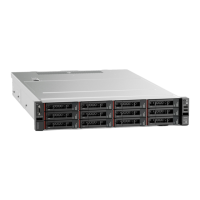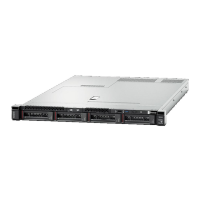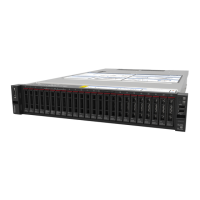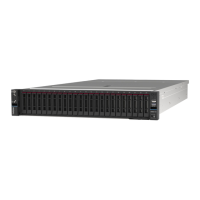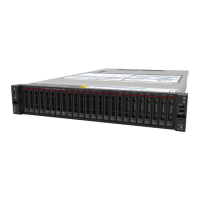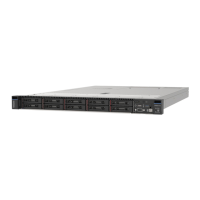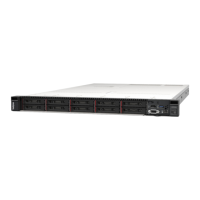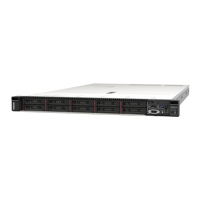Table 10. Jumpers and switches on the system board
Jumper/Switch name
Jumper/Switch
number
Jumper/Switch setting
1 TPM/TCM physical
presence jumper
JP6
• Pins 1 and 2: The jumper is in default setting.
• Pins 2 and 3: TPM/TCM physical presence is asserted.
2 Clear CMOS jumper
JP3
• Pins 1 and 2: The jumper is in default setting.
• Pins 2 and 3: Clear the real-time clock (RTC) registry.
3 ME firmware security
override
JP8
• Pins 1 and 2: The jumper is in default setting.
• Pins 2 and 3: Enable Flash security override.
Note: For debug only.
4 SW6 switch block
SW6
(including switches
1, 2, 3, 4, 5, 6, 7, and
8)
All the switches are in the Off position by default.
• Switches 1, 6, and 8: Reserved.
• Switch 2: Override power-on password switch. Changing
position of this switch overrides the power-on password.
Changing position of this switch does not affect the
administrator password.
4 Power permission SW6 (switch 7)
The default position is Off. Changing this switch to the On
position enables Power On.
4 Force XCC reset
SW6 (switch 4)
The default position is Off. Changing this switch to the On
position resets the Lenovo XClarity Controller.
4 Force XCC update SW6 (switch 3)
The default position is Off. Changing this switch to the On
position forces the Lenovo XClarity Controller to update to the
latest version.
Important:
• Before you move the switches and jumpers, turn off the server. Then, disconnect all power cords and
external cables. Do not open your server or attempt any repair before reading and understanding the
following information:
–
http://thinksystem.lenovofiles.com/help/topic/safety_documentation/pdf_files.html
– “Handling static-sensitive devices” on page 56
• Any system-board switch or jumper block that is not shown in the illustrations in this document are
reserved.
System board LEDs
The following illustration shows the light-emitting diodes (LEDs) on the system board.
30
ThinkSystem SR550 Maintenance Manual

